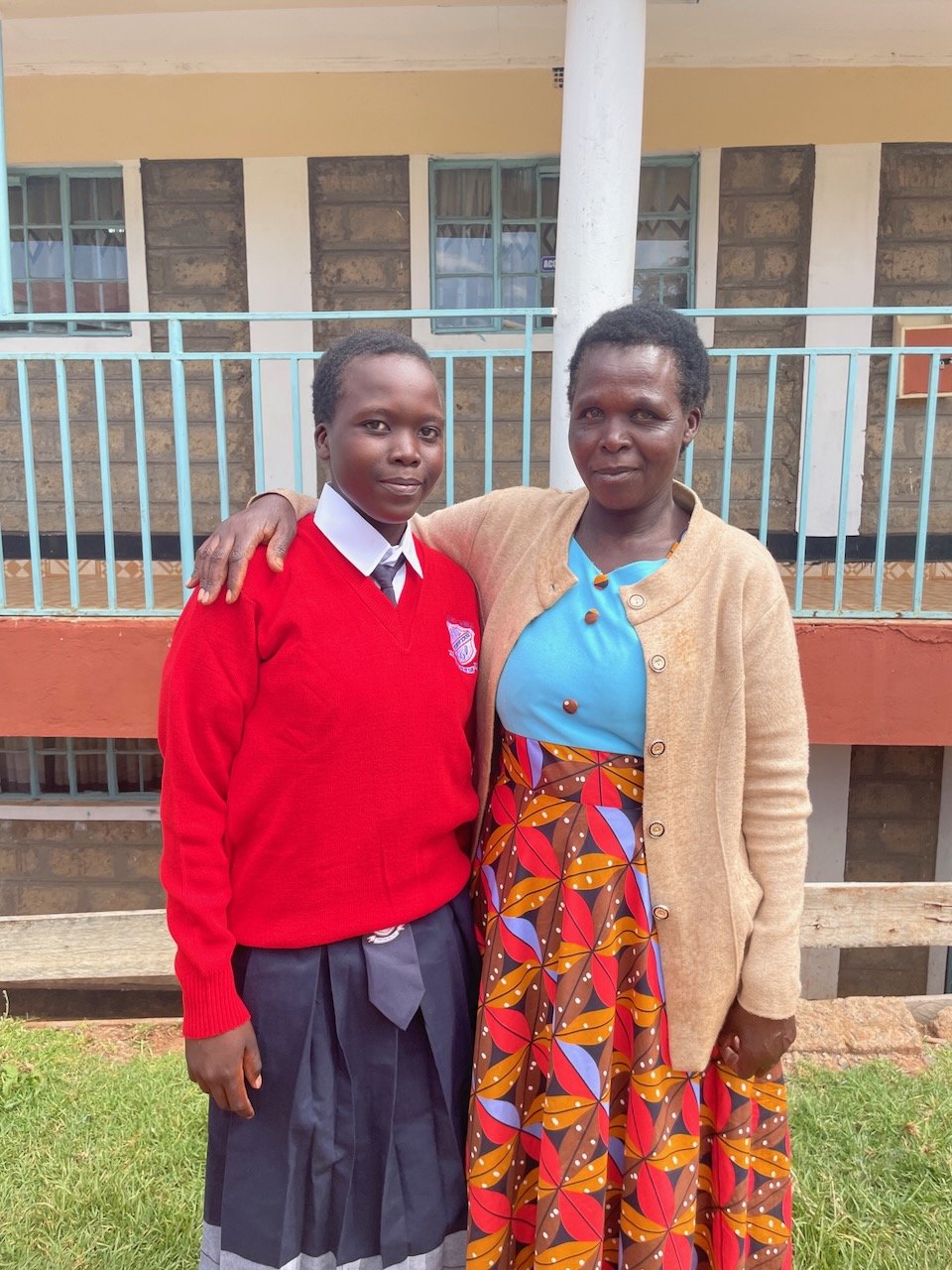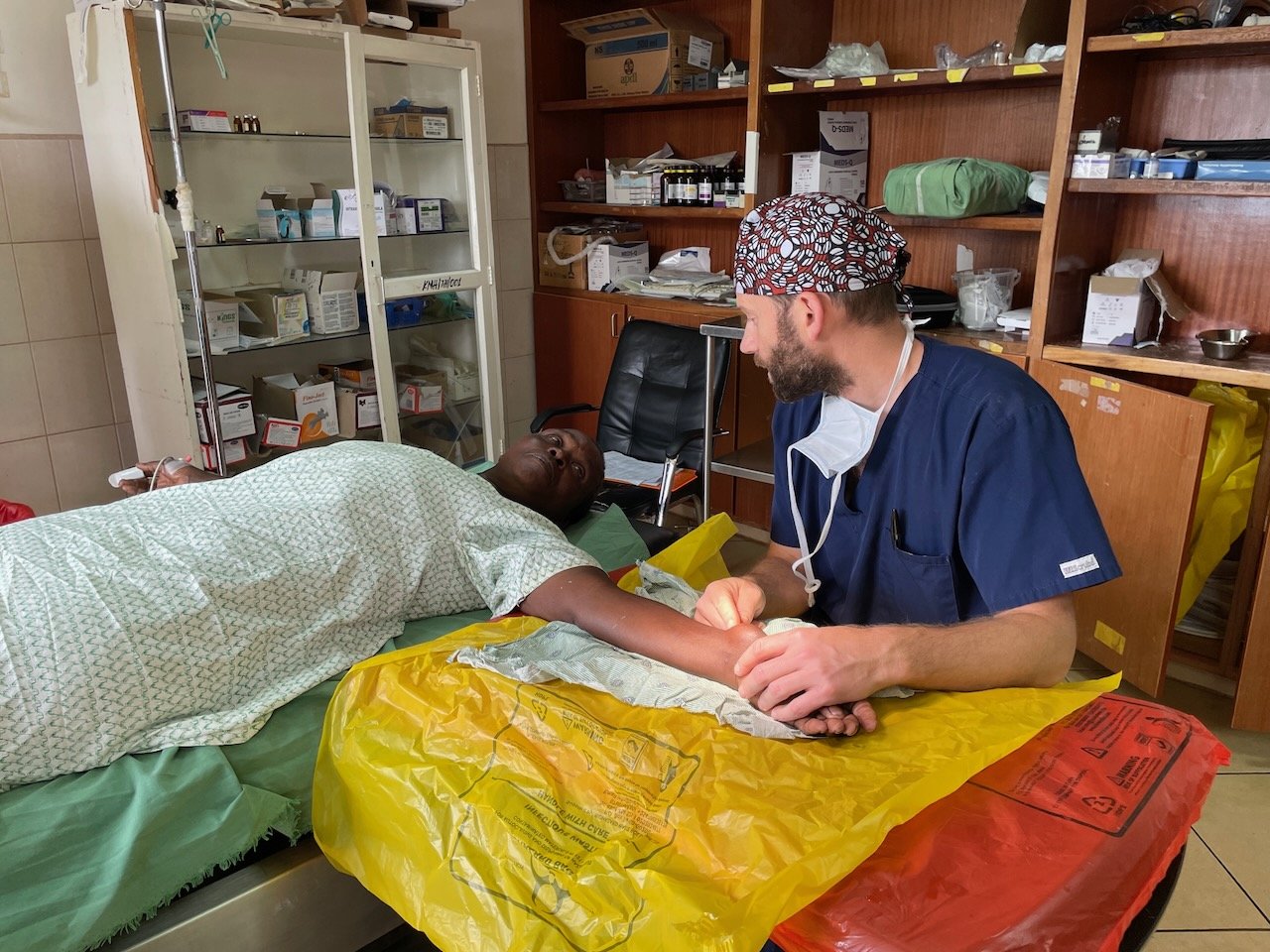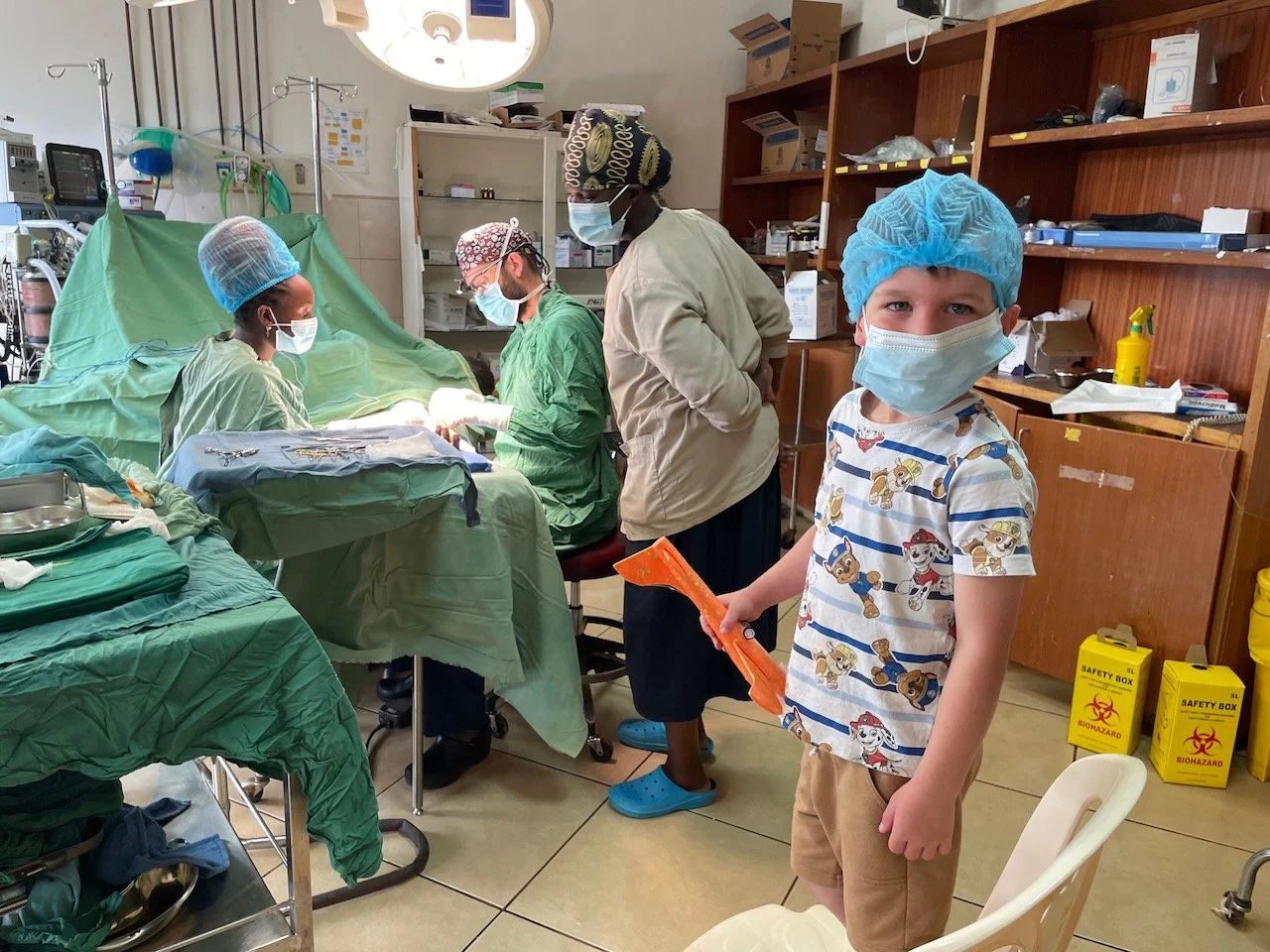Daisy’s Story
Daisy was 16 and in her second year of high school when I met her at the hospital.
She had come to Kapsowar with an ectopic pregnancy after being turned away from her local county hospital, where Kenya’s doctor strike left her without care. Her family, too poor to afford insurance, borrowed $3 from friends for the 45-minute public transport ride. Thankfully, she arrived in time for a life-saving surgery.
The $484 bill was impossible for her family to pay, but our Patient Assistance Fund, made possible by generous donors, covered the cost. Sensing deeper challenges at home, our social work team decided to follow up with a home visit to see how things were going after she was discharged.
Daisy ready to be discharged from the hospital
So one afternoon, we all piled into my minivan and made the 45-minute drive to Daisy’s home to learn more about her.
I have to say, I love spending time with our social work team. They have an incredible understanding of how families, hospitals, and healthcare work in Kenya, and they’re always patient with my endless questions. Plus, they’re such a fun group—we laugh constantly!
When we arrived, we walked from the dirt road to Daisy’s small mud-walled, tin-roofed home, where she lives with her mom and siblings. They own a cow and a small plot of land for growing maize, their main source of food. If they have a surplus, they sell it for about Ksh 15,000 ($115) to cover food, school fees, and other necessities for the year. Break that down into a daily allowance - and that’s 30 cents a day to support multiple people in a household.
Edwin told us that they had neighbors bring furniture so we as guests would have a place to sit since they normally do not have couches in their home.
Having tea inside Daisy’s home
Left to right: Daisy’s mom, Daisy, and her older brother in front of their kitchen (left) and home (right)
Over tea, we learned more about Daisy’s family. Her mom lost her husband to multi-resistant tuberculosis 16 years ago and has struggled to provide for her children ever since. Tragically, after her husband’s death, Daisy’s mother was taken advantage of by his brother, leading to Daisy’s conception. Her attempts to seek justice were ignored by the local chief, a friend of the perpetrator.
We also discovered Daisy often misses school due to unpaid fees. She had been home for a month before her hospital visit because her family couldn’t afford to pay them.
After tea, our social worker Dorcas and I had a private conversation with Daisy about how she almost became a mother. She was scared and overwhelmed, sharing that it was her first encounter with a boy and that she didn’t know pregnancy was possible. With little reproductive health education available, her experience wasn’t uncommon. Daisy expressed determination to focus on her studies, saying she wants to become a doctor so she can help others just as the doctors at Kapsowar helped her.
Situations like these are all too common in Kenya. They are also complex to navigate, and I certainly don’t have the answers. So I do what I usually in complex cultural situations I do not understand - I asked my colleagues, “What do you think we should do?”
Obviously, we wanted Daisy to return to school. But Edwin explained that in small, rural communities, word spreads quickly. Students and teachers often stigmatize a girl who’s been pregnant, spreading rumors of abortion. This would no doubt affect her mental health and academic performance.
Edwin suggested we enroll her in a new school.
So we decided we’d try to give Daisy a fresh start. Edwin set up an interview for her.
In Kenya, high school functions more like college—students must be accepted based on their test scores, and most schools are boarding schools. Edwin arranged for Daisy to interview at a nearby girls’ school.
Thankfully, Daisy tested well and was offered one of the two available spots! Dorcas coordinated everything she needed to start, from school supplies to personal items—think college freshman move-in.
When it was time to enroll her, we all piled into the minivan again for the 20-minute drive with Daisy, her mom, and our social work team.
I’ll never forget a specific moment from that day.
Having filmed many weddings, I’ve seen the unique glow on a mother’s face when she first sees her daughter in a wedding dress—joy, pride, and hope all rolled into one. Watching Daisy’s mom that day as she put on her brand new uniform for the first time, I saw that same glow.
Left to right: Edwin, Daisy’s mom, Daisy, me, and Dorcas
A proud mama!
Since then, Daisy has been thriving in school. In Kenya, education is the only path to a better future, and thanks to our supporters, we were able to give her both a fresh start and a real chance. Your funds help pay the $200/year tuition for her.
Daisy is just one of many girls in similar predicaments. But day by day, we strive to be faithful with the person God puts in front of us.
The mind blowing part is that the impact for Daisy’s family doesn’t even end there. During our first visit to Daisy’s home, we noticed her mom had a painful wrist cyst that prevented her from working, and her younger sister Sandra had a congenital hand issue with fused fingers. Neither had ever seen a doctor.
Incredibly, we have a Mayo Clinic-trained hand surgeon at our hospital.
With donor funds, we enrolled the family in insurance, enabling Daisy’s mom to have her cyst removed. Sandra is also scheduled for surgery to correct her hand.
Daisy’s little sister getting her hand photographed in preparation for surgery
Daisy’s mom about to have surgery for a cyst on her wrist to be removed
Our hand surgeon, Dr. Niles, invited Micah to come watch the surgery since he had come up to the hospital with me that morning!
All of this stemmed from one visit to a patient’s home. Often, meeting one need reveals two more. The overwhelming need can feel daunting, but it’s also deeply encouraging to witness the life-changing impact of even small interventions.
For Daisy and her family, these provisions have been transformative. And it’s all thanks to the generosity of our supporters.
If you’d like to contribute to the needs of patients like Daisy, you can give through our Serge fund here.








